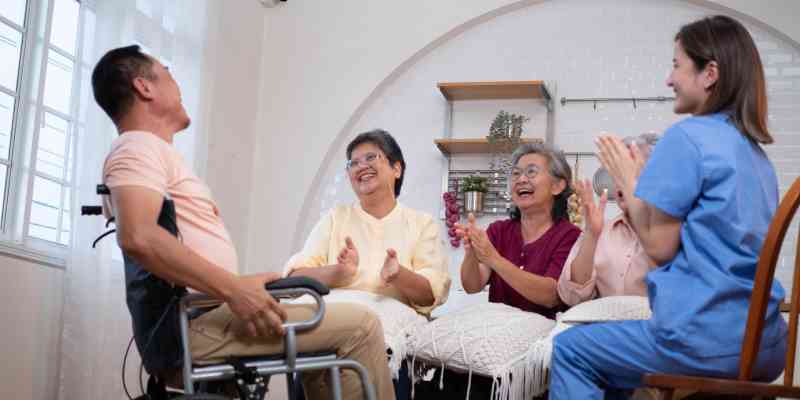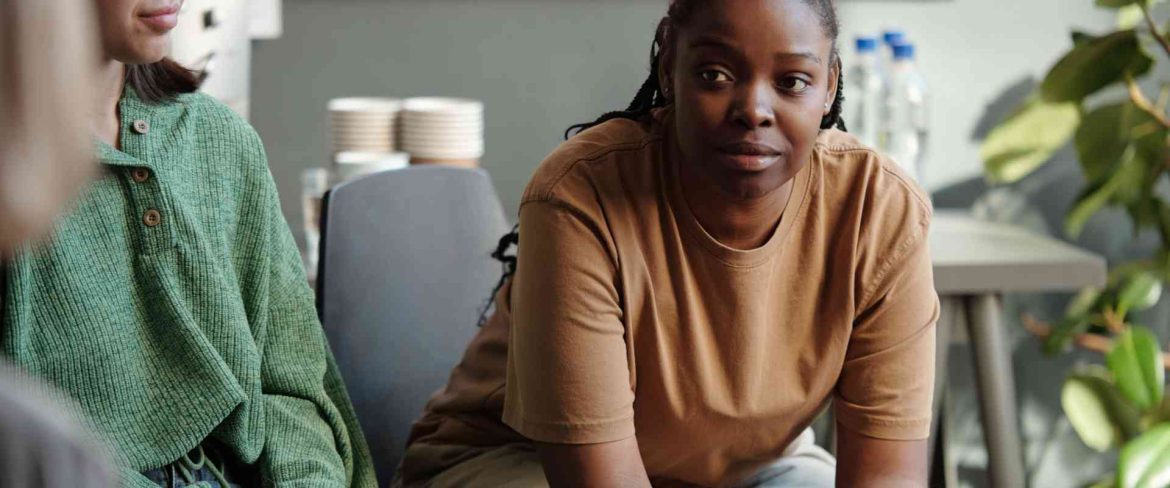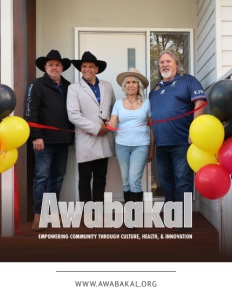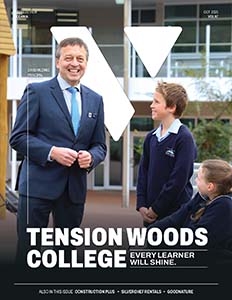Awabakal Limited: Empowering Community Through Culture, Health, and Innovation
In the heart of New South Wales, an organization born from the spirit of community and cultural strength continues to lead the way in Aboriginal health and social empowerment. Awabakal Limited, one of the state’s largest Aboriginal community-owned and operated organizations, stands as a testament to the enduring power of self-determination, partnership, and vision.
For Jason Smith, Chief Executive Officer of the Awabakal Group, the work is deeply personal — a continuation of a legacy begun by his grandfather and other community leaders nearly fifty years ago.
“Awabakal was created by our people, for our people,” Smith begins. “It’s about delivering culturally appropriate, holistic health care and support that meets the real needs of Aboriginal families — while honoring the traditions, language, and kinship that make our community strong.”
A Legacy of Leadership
The roots of Awabakal trace back to the 1970s, when a small group of Aboriginal men — Uncle Bill Smith, Uncle George Griffith, and Robert Smith — recognized the urgent need for community-controlled services in the Newcastle region.
Their vision became reality in 1977 with the official registration of the Awabakal Newcastle Aboriginal Cooperative Limited. The organization evolved over the decades, becoming Awabakal Limited in 2014. What began as a small, volunteer-led cooperative has since grown into a multifaceted service provider reaching across Newcastle, Lake Macquarie, and Port Stephens.
“Back in the day, our founders didn’t have government funding or resources,” Smith reflects. “They hitchhiked to meetings, shared rooms, and did whatever it took to make their voices heard. That commitment to transparency, partnership, and sustainability is still at the heart of everything we do.”

From Health Care to Housing — A Comprehensive Service Network
Today, the Awabakal Group encompasses a range of integrated services designed to support Aboriginal people “from birth to death and everything in between.” Smith point to Its operations that include, three medical clinics in Raymond Terrace, Cardiff, and Hamilton, a Spiritual and Emotional Wellbeing Team based in Wickham, two Aboriginal preschools, an aged care facility in addition to Awabakal Enterprises, a social enterprise managing community and social housing portfolios
These services collectively deliver primary health care, chronic disease management, emergency care, and crisis intervention, while also addressing broader determinants of health such as education, housing, and employment. Specialized programs also focus on Indigenous smoking and vaping cessation and mental health support.
“Our mission is empowerment,” Smith emphasizes. “We want to give our people the opportunity to live healthy, educated, and self-sufficient lives — with services that are not just for the community, but owned and led by it.”
Guided by Culture: The Triple C Commitment
Cultural connection remains Awabakal’s cornerstone. The organization is guided by three interlocking principles — Consultation, Collaboration, and Communication — known internally as the Triple C Commitment.
“Consultation ensures that our community’s voices are always heard,” Smith explains. “Collaboration brings our people together through mutual respect and shared purpose. And communication ensures we do everything with integrity, transparency, and cultural safety.”
That deep respect for tradition and kinship also extends to Awabakal’s approach to governance. Smith describes a model of cultural governance that complements corporate structures, blending accountability and spirituality in equal measure.
“Cultural safety isn’t a checkbox,” he says. “It’s how we live, lead, and serve — every decision, every conversation, every partnership is grounded in that cultural responsibility.”

Awabakal Enterprises: Building Socio-Economic Empowerment
One of Awabakal’s most exciting growth areas is Awabakal Enterprises, a registered social enterprise focused on community housing and economic empowerment.
Through this arm, the organization is helping Aboriginal families move from disadvantage to opportunity — exploring pathways for home ownership, small business creation, and long-term financial independence.
“We’re redefining what self-determination looks like in a modern context,” Smith notes. “Awabakal Enterprises is not just about bricks and mortar — it’s about building pathways to prosperity.”
Partnerships that Power Progress
Partnership has always been central to Awabakal’s story. From its earliest years, the organization’s founders engaged with both Aboriginal and non-Aboriginal allies — from government ministers to local business owners — to advance health, housing, and education.
That philosophy endures today through a robust network of partnerships with local, regional, and state stakeholders, as well as through formal Memorandums of Understanding (MOUs) and Reconciliation Action Plan (RAP) collaborations.
“Our non-Aboriginal partners play a vital role,” Smith says. “We invite them to walk with us — to co-design, to collaborate, and to invest in a shared journey toward equity and sustainability.”
The organization is currently seeking further capital investment to expand its housing and healthcare footprint and to support innovation projects that strengthen community outcomes.
Innovation Rooted in Culture
While cultural tradition grounds the organization, innovation propels it forward. Awabakal’s five-year strategic plan outlines a bold vision for integrating emerging technologies with culturally responsive service delivery.
Among the company’s key initiatives, Smith points out its focus on smart housing solutions that use technology to monitor home health and energy efficiency, AI-powered decision tools to predict and prevent community health or housing crises, as well as Blockchain data management to protect privacy and ensure cultural data sovereignty.
The company also has moved its concentration into the areas of Virtual reality (VR) training for culturally sensitive health and aged care education, in addition to renewable energy and smart infrastructure across housing and healthcare operations
“Technology should serve culture — not replace it,” Smith asserts. “We’re using innovation to enhance our capacity, improve outcomes, and ensure no system ever becomes obsolete for our people.”
Cross-Sector Collaboration: The Key to Sustainability
Looking to the future, Smith believes that cross-sector collaboration will define the next chapter of Aboriginal community-controlled health in Australia.
“Whether it’s housing, education, health, or technology, collaboration is the key,” he says. “Awabakal is here to partner — to lend cultural insight, to help organizations build cultural competency, and to work side-by-side in creating a stronger, healthier future for everyone.”
The organization’s five-year vision centers on optimization, innovation, and sustainability, reinforcing its long-standing reputation as a leader in Aboriginal self-governance and community care.
A Call to Partnership
For Smith, the path forward is clear — and collective.
“Our success has always been built in partnership,” he concludes. “We’re asking our partners — old and new — to join us on this journey. Help us invest in our people, our culture, and our future. Because when our community thrives, we all thrive.”
Awabakal Limited remains a powerful example of Aboriginal leadership, resilience, and innovation in action — a living legacy of those who believed that unity, culture, and compassion could change the course of generations.
AT A GLANCE:
Who: Awabakal
What: Awabakal is an Aboriginal community organisation that supports the health, wellbeing, and cultural strength of Aboriginal people in the Hunter region.
Where: Newcastle, New South Wales, Australia
Website: www.awabakal.org
PREFERRED VENDORS/PARTNERS
Awabakal : www.awabakal.org
Awabakal is a leading Aboriginal community organisation dedicated to improving the health, wellbeing, and future of its people. For over 40 years, it has delivered trusted medical, dental, and social services while promoting culture, empowering youth, supporting families, and ensuring a strong, sustainable future for generations to come.






 This information will never be shared to third parties
This information will never be shared to third parties